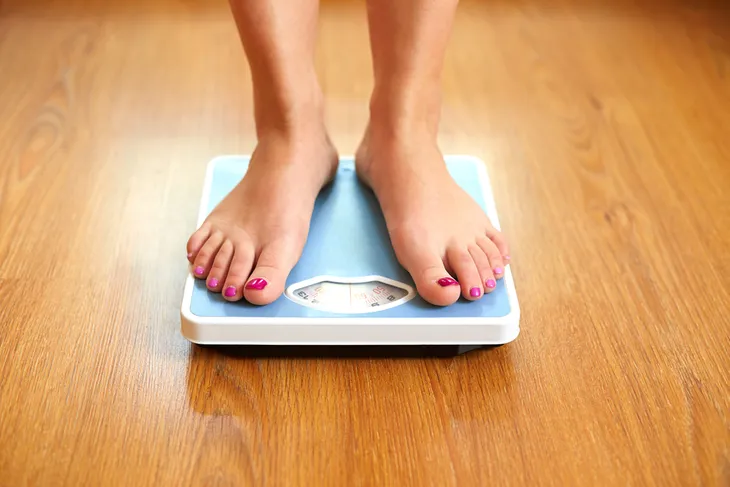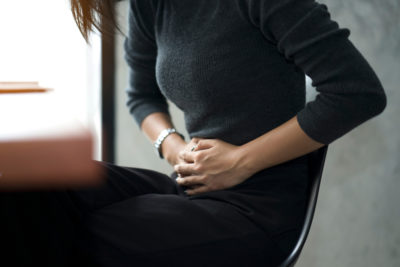- Postmenopausal women have an increased risk for certain health threats, such as osteoporosis and heart disease.
- By visiting your health provider regularly, maintaining healthy daily habits, and having a healthy mindset, you can live happy and healthy.
- Postmenopause symptoms can often be managed at home, however, if your symptoms disrupt your daily life, it’s time to contact your doctor.
Our bodies are constantly changing, even as we grow older. And while you may have been relieved to finally be done with the monthly menstrual cycles and cramps, you’ll find yourself in a new phase of life with new challenges. After all, menopause can cause hot flashes, night sweats, and other unpleasant symptoms. That said, once you’ve been without a menstrual period for 12-months, you’ve officially entered the postmenopause stage. But this stage isn’t without its challenges either!
Postmenopausal women have an increased risk for certain health threats like osteoporosis and heart disease. Luckily, with a few lifestyle adjustments, you can decrease your risk. Let’s take a look at some steps you can take to live happy and healthy in postmenopause!
What Is Postmenopause
The Cleveland Clinic explains postmenopause as “a term to describe the time after someone has gone through menopause.” You’re officially in postmenopause once you’ve gone longer than 12 consecutive months without a menstrual period. Once you’ve entered this stage you no longer ovulate, and the menopausal symptoms you may have experienced usually become milder or go away completely. That said, the source notes that some individuals experience menopausal symptoms for a decade (or longer) after menopause.
Furthermore, there isn’t a designated age for when postmenopause starts — it will vary for everyone! However, on average women go through menopause around 51-years of age.
What to Expect in Postmenopause
There are three stages of menopause: perimenopause, menopause, and postmenopause. Once you enter the last stage, postmenopause, you’ll be in that stage for the rest of your life. As you approach this stage of your life, you might be wondering “what can I expect?”
During postmenopause, you’ll, of course, no longer have a monthly period and you can no longer get pregnant. Your hormone levels will also remain low. Low estrogen levels can lead to more serious health concerns, such as bone loss. This can increase your risk for osteopenia and osteoporosis. Low hormone levels can also increase your risk of a heart attack, stroke, and other heart problems. This is why it’s so important to maintain a healthy lifestyle postmenopause.
How to Live Happy and Healthy in Postmenopause
Navigating these health changes can be overwhelming and daunting but the good news is with a few lifestyle adjustments, you can manage your symptoms and live happy and healthy. First, it’s important to work with your doctor to officially diagnose menopause and monitor your symptoms. Listen to your body and if you’re concerned about your symptoms voice them to your doctor.
You should also talk to your doctor to find out what steps you should take to help decrease your risk of some health concerns that may arise in postmenopause. Your doctor may recommend dietary changes, exercise, and stress management strategies. Let’s take a look at how you can live happy and healthy postmenopause.
The Importance of Exercise
It’s no secret that exercise is important but it may be even more important as you get older. Regular exercise can help prevent unwanted weight gain, keep your joints and muscles strong, improve your flexibility, promote heart health, and it may even improve your mood.
Johns Hopkins Medicine also notes that individuals who aren’t physically active may have an increased risk of heart disease, obesity, high blood pressure, diabetes, and osteoporosis. “Sedentary women may also have chronic back pain, insomnia, poor circulation, weak muscles, and depression,” explains the source.
According to the Centers for Disease Control and Prevention (CDC), adults need at least 150-minutes of moderate-intensity aerobic physical activity. It’s also important to talk to your doctor before starting a new workout regimen. That said, postmenopausal women may benefit from a combination of strength training and cardiovascular exercise.
Eat a Healthy Diet
Eating a healthy diet is important throughout life, but if you don’t have healthy eating habits yet, it’s important that you establish them now. As you age, your nutritional needs change too, and that includes during postmenopause.
Postmenopausal women should lean on fresh, wholesome foods including fresh vegetables and fruit, lean protein, grains, nuts, and dairy. Try to limit processed foods when possible. Dietary changes can be overwhelming so it’s best to lean on professionals for support. Work with your doctor and a dietician to find out what dietary needs you have.
 Shutterstock/NDAB Creativity
Shutterstock/NDAB CreativityThe Importance of Calcium and Vitamin D
As we mentioned earlier, postmenopausal women are at a greater risk of developing osteoporosis. So, it’s important to take care of your bone health. One way you can do that is by monitoring your calcium and vitamin D intake. The National Library of Medicine says your body needs calcium “to keep your bones dense and strong,” and you need vitamin D because it helps your body absorb calcium.
You should talk to your doctor about your calcium and vitamin D needs and find out how much you need daily. Most of your nutrients should come from whole foods, but your doctor may recommend supplements if your diet doesn’t provide all the nutrients you need.
 Shutterstock/Evan Lorne
Shutterstock/Evan LorneHow to Manage Hot Flashes
Hot flashes are a common symptom of menopause. While you might be hoping to leave them behind, The North American Menopause Society (NAMS) notes that it’s “not uncommon for women to experience a recurrence of hot flashes more than 10 years after menopause, even into their 70s or beyond.” Unfortunately, there is no reliable way to know when they will start or stop. The best thing you can do is learn how to manage them.
To manage hot flashes, WebMD recommends wearing layers so you can remove clothing when they occur. Sleeping in a cool room may also help you sleep through the night. The source also says certain foods and beverages may trigger hot flashes, such as spicy foods and alcohol, so it may be best to avoid these. Reducing stress may also help.
Skin Care
Our skin is another thing that changes as we age. Sometimes it sags, or wrinkles form, and this is all part of the aging process. That said, there are healthy skin habits you can start doing to take care of your skin.
NAMS says you can take care of your skin by avoiding smoking, reducing stress, and getting enough exercise and sleep. Staying hydrated, and avoiding overexposure to sunlight is another great way to take care of your skin. Finally, the source says you should avoid hot, soapy showers and baths as they can dry out your skin.
 Shutterstock/Rido
Shutterstock/RidoWhat to Do About Urinary Incontinence
Urinary incontinence is a condition that causes unintentional loss of urine. While it can happen to anyone, it’s more common in older women, especially during or after menopause, says Main Line Health.
As you get older, the pelvic floor muscles can become weak which causes urinary incontinence to develop. Luckily, NAMS says urinary incontinence can be improved by practicing pelvic floor muscle exercises. This involves “repeated contraction and relaxation of the muscles that control urine flow.” The goal is to strengthen your muscles so they can support the bladder.
To practice this, the source says to contract your pelvic muscles for 3-second and then relax. Repeat for 10 repetitions and up to five times per day.
Be Aware of Midlife Weight Gain
Managing a healthy weight is important for your overall health as obesity can increase your risk for various health concerns such as high blood pressure, diabetes, mental illness, heart disease, and more. It’s not uncommon for women to gain fat in midlife and it’s often related to aging and lifestyle choices, says NAMS.
Losing weight involves a few strategies from eating a healthy diet to exercising regularly. But your mental health also plays a role. Manage your stress by meditating, journaling, reading, gentle stretching, or whatever helps you relax the most. You should also work closely with your doctor to find out what a healthy weight is for you.
Sleep Management
It’s not uncommon for postmenopausal women to suffer from sleep disturbances. The culprit is usually due to hormonal changes which can cause hot flashes, night sweats, and other sleep disturbances. However, sleep is still a very important part of living healthy and happy.
To get better sleep, you may benefit from sleeping in a cool room, especially if you experience frequent hot flashes. Improving your sleep hygiene habits can also help you get into a better sleep schedule and get better quality sleep. For starters, avoid big meals, caffeine, and alcohol before bed. Avoiding bright lights and loud noises and winding down before bed by relaxing in a warm bath or shower, reading, or gentle stretching may also improve your sleep.
Take Care of Your Heart Health
As you get older, your risk for heart disease also increases. This is why it’s important to establish heart-healthy habits postmenopause.
WebMD says you can protect your heart by having your cholesterol and blood pressure checked regularly. If your levels are too high, you can work with your doctor to establish a treatment plan to manage them. Staying active, eating a healthy diet, and managing your stress are also crucial steps in promoting heart health.
When to See a Doctor
Postmenopause symptoms can often be managed at home, however, if your symptoms disrupt your daily life, it’s time to contact your doctor. You should also contact your doctor if you experience vaginal bleeding during postmenopause. This may indicate an underlying medical condition.
It’s also important to still visit your doctor for routine gynecological care even in postmenopause. Routine checks like pap tests, pelvic exams, and mammograms are important screening tools for cancer and other conditions. Your doctor may also recommend bone density screenings too since you have an increased risk of osteoporosis. Talk to your doctor about what health screenings you need.
Embrace Your Changing Body
While your body goes through changes it can be easy to play the comparison game and dwell on what your body was like in your younger years. However, it’s important to take a pause and embrace your changing body. Take time for self-love, whatever that means for you.
You may even find it beneficial to lean on friends or family who are in a similar stage of life as you. Finally, by visiting your health provider regularly, maintaining healthy daily habits, and having a healthy mindset, you can live happy and healthy postmenopause.














